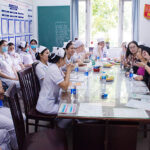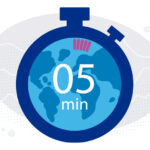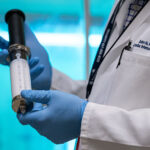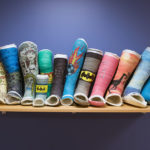My nursing story: Alexis Schmid
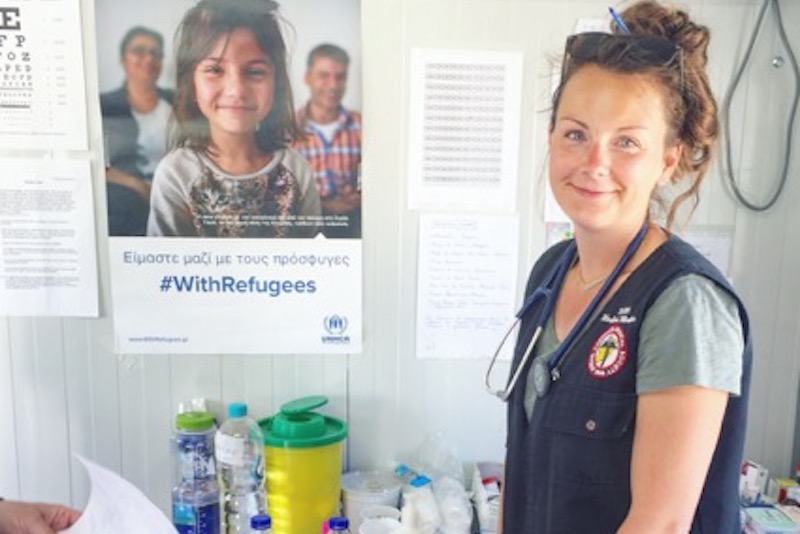
Dr. Alexis Schmid is a nurse in the Emergency Department at Boston Children’s Hospital and the Maggie Ryan Endowed Global Health Fellow.
Fifty million children around the world are currently migrants or refugees, uprooted from their homes due to violence, poverty, or other factors out of their control. The statistics are alarming:
- Approximately 70 percent of deaths of children under age 5 are caused by medical conditions that could have been prevented or treated with access to simple, affordable intervention.
- The number of child refugees worldwide (under the mandate of the United Nations High Commissioner for Refugees) more than doubled between 2005 and 2015, from 4 million to 9 million.
- Almost one in 10 children live in countries and areas affected by armed conflict. More than 400 million live in extreme poverty.
- One in 200 children worldwide is a refugee. Half the world’s refugees are children, even though children account for less than one-third of the global population.
(Sources: World Health Organization, UNICEF)
An island refugee camp
Greece has been welcoming arrivals by sea from Syria, Iraq, Pakistan, and Afghanistan, many of whom have urgent health care needs. Local clinicians requested augmentation of their pediatric knowledge and skills base, as well as triage and mass casualty training.
Last spring, I was able to work in a refugee camp in Kos, Greece. The camp was located in the center of the island on the edges of a national park; concrete walls and barbed wire enclosing the camp were juxtaposed with the vibrant colors of the small villages perched along the hills and grazing cows.
They urgently needed a nurse skilled in both pediatrics and emergency care who could provide direct clinical care as well as teach local Greek nursing staff about common pediatric ailments and triage.
The importance of exchange
As the only pediatric specialist in the camp, I was quite busy. I worked alongside international and local staff to provide direct clinical care to the sick and injured, provide education to local staff on triage and pediatric care, and evaluate and rapidly stabilize emergency cases for transfer to the hospital. There were limited ambulance services on the island, so thoughtful use was imperative.
I saw firsthand lives being saved because I was able to exchange knowledge with caregivers from all corners of the world and pass this knowledge on to untold others. This trip reinforced to me that a bidirectional, respectful exchange of teaching and learning is key to the success of any global health endeavor.
My clinic and the other NGO/UN facilities were located in refurbished shipping containers inside the camp; children commonly darted in between, playing hide and seek or kicking around a soccer ball. Clinic was constantly busy with emergencies, but one of my favorite patients was a 16-year-old war orphan in the camp who was also caring for his two younger brothers. He brought them to clinic every afternoon to get them checked out, just to make sure that they were OK.
Gratitude and lessons learned
Through this experience, I’ve learned about the incredible resiliency and hope of children in all corners of the world. I’m so grateful that I have the support to participate in the fight to give these kids a chance to live in a world free of illness and injury and to have access to the care they deserve.
Learn more about Boston Children’s Global Health Program.
Related Posts :
-

“Observe. Be open.”: How Boston Children’s nurses are changing the future of global health
Ashley Birch, MSN, CPNP, a Boston Children’s pediatric nurse practitioner and Global Nursing fellow, didn’t expect a trash ...
-

Status epilepticus: What’s changed, what to know, and a global perspective
Status epilepticus, or a prolonged seizure lasting more than five minutes, is a rare complication of epilepsy and a medical ...
-

Injected microbubbles could be a safe way to deliver emergency oxygen
For years, researchers and clinicians have been trying to find a way to rapidly deliver oxygen to patients when traditional ...
-

Emergency department or urgent clinic? Understanding your options if your child is injured
Having an active or adventurous child often means comforting them when they come home with bumps or bruises. But when ...


